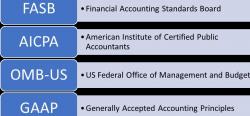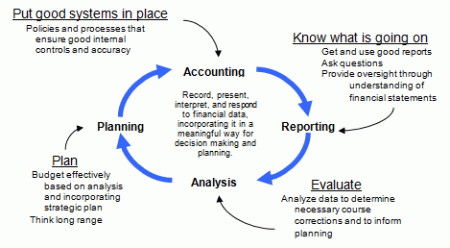Reporting and Operations
Stewardship & Accountability
As board members and managers of nonprofit organizations, we are constantly reminded that we must be good stewards of the public trust, ensuring the resources of our organizations are well protected and used efficiently to accomplish the missions for which our organizations exist. We are also charged with making certain our management practices ensure the long-term sustainability of the organization.
Board members specifically carry this fiduciary responsibility for the organization. They must see to it that managers fulfill all regulatory, legal, and reporting requirements required by federal, state, and local governments, as well as meeting accounting guidelines and standards specific to the nonprofit industry. Add to that ensuring the organization complies with all restrictions imposed by donors on the use of their contributions.

To accomplish all of this requires the organization to set up a well- integrated financial management cycle featuring:

To be financially accountable, those responsible for the organization will adopt and follow good financial and risk management policies.
• They will engage staff or volunteer board members who have appropriate accounting and analytical skills to ensure accurate and dependable accounting.
• They will require timely, accurate, and readable financial reports with relevant content and sufficient context for readers to interpret the financial data presented.
• They will then use what they have learned from these reports and from other sources to make good management decisions, implement necessary course corrections, and plan for the future of the organization.
• Small or all-volunteer organizations benefit from putting good systems in place in the beginning, while they are small, to position the organization to grow without having to endure a disruptive overhaul to its financial operations in a growth spurt.
• Setting up a logical and relevant accounting structure (chart of accounts and activity classes) and writing down procedures for financial transactions (internal controls manual) create a strong foundation for accountability.
The presence of a fully engaged and effective finance committee is a sure indication that an organization is committed to good stewardship and is actively building and preserving the financial resources necessary to support the accomplishment of its mission, both for the short term and the long term.
Return to the Financial Management Introduction page for links to other related information.




